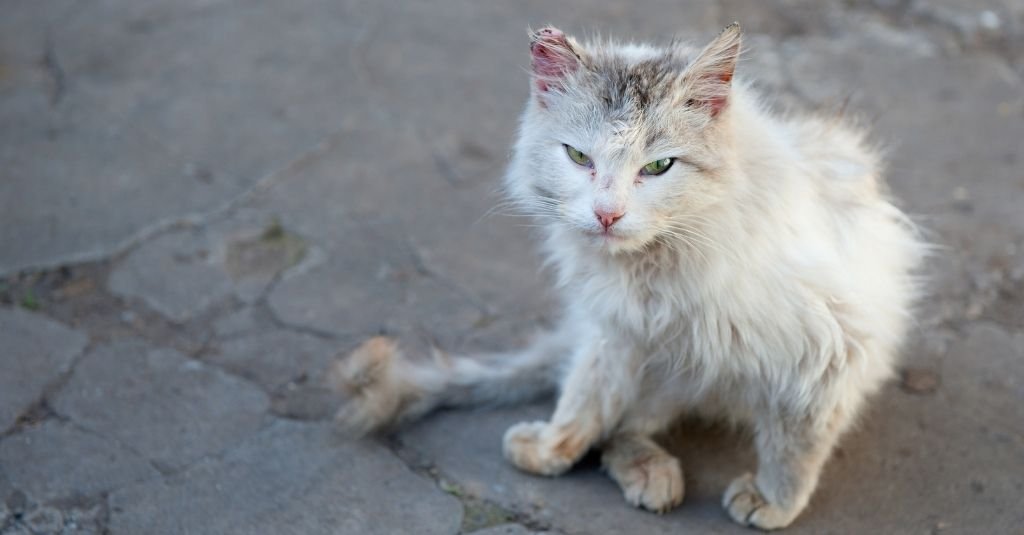
Feline immunodeficiency virus (FIV) is a retrovirus that weakens a cat’s immune system, making them more vulnerable to infections, dental disease, and chronic illnesses. Often compared to HIV in humans, FIV in cats progresses slowly, and many affected cats can still live long, healthy lives with the right care.
In this article, we’ll explore what FIV is, how it spreads, symptoms to watch for, how it’s diagnosed, and the best ways to manage and prevent it.
What is Feline Immunodeficiency Virus?
Feline immunodeficiency virus is part of the retrovirus family, which means it integrates into the host’s DNA and disrupts immune function. While it is sometimes referred to as “feline AIDS,” FIV is unique to cats and cannot spread to humans, dogs, or other species.
The virus mainly weakens a cat’s immune defenses, leaving them more susceptible to secondary infections rather than directly causing disease.
How FIV Cats Become Infected
FIV cats usually contract the virus through bite wounds during fights, making outdoor, unneutered male cats the most at risk. Less common modes of transmission include:
Mother-to-kitten transmission in the womb
Rare sexual transmission
Sharing food bowls or casual contact (uncommon)
Because transmission requires deep wounds, indoor cats are much less likely to contract feline immunodeficiency virus.
Symptoms of FIV in Cats
Cats with FIV often remain symptom-free for years. Once the immune system weakens, secondary infections and chronic health issues begin to appear.
Common signs include:
Weight loss and muscle wasting
Fever and lethargy
Recurring skin, eye, and respiratory infections
Dental issues such as gingivitis, stomatitis, and periodontitis
Diarrhea, vomiting, or gastrointestinal problems
Enlarged lymph nodes
Chronic runny eyes, sneezing, and corneal ulcers
In advanced stages, FIV cats often experience severe wasting and ongoing infections.
Diagnosing Feline Immunodeficiency Virus
FIV is typically diagnosed with a blood test (SNAP test) that checks for antibodies. Kittens under 6 months may test false positive due to maternal antibodies, so retesting after a few months is recommended.
If your cat tests positive, don’t panic—many cats live for years without major issues, especially with proper veterinary care.
Treatment Options for FIV Cats
There is currently no cure for feline immunodeficiency virus, but supportive care can dramatically improve quality of life.
Treatment strategies include:
Regular vet check-ups to catch secondary infections early
Antibiotics or antifungals for bacterial and fungal infections
Immune-boosting therapies such as interferons in some cases
High-quality diet with proper nutrition
Fish oil supplements (omega-3s for anti-inflammatory benefits)
Strict indoor living to prevent further exposure and protect other cats
Cats with FIV should not receive modified live vaccines, as their weakened immune systems may not handle them safely. Instead, inactivated vaccines are preferred.
Can FIV Cats Live a Normal Life?
Yes—many FIV cats live long, happy lives. With proper care, they can remain symptom-free for 5–10 years or more. The key is preventing exposure to pathogens, addressing health issues promptly, and ensuring a stress-free, enriched indoor environment.
Preventing Feline Immunodeficiency Virus
Since FIV vaccines are not widely used due to variable effectiveness, prevention mainly relies on:
Keeping cats indoors or supervised outdoors
Neutering males to reduce fighting behavior
Testing new cats before introducing them into a multi-cat household
Immediate vet care at the first sign of illness
If you care for an FIV cat, you are providing a safe and loving environment for a special-needs pet that can still give you years of companionship.
Final Thoughts
Feline immunodeficiency virus is not a death sentence. While FIV cats face health challenges, supportive care, early detection, and a safe indoor lifestyle allow many to thrive for years.
If you suspect your cat may be at risk, consult your veterinarian for testing and advice. For more detailed veterinary guidance, you can visit Cornell Feline Health Center.